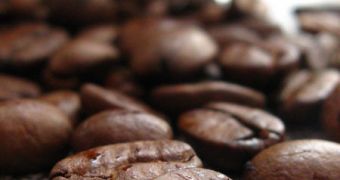As if working the night shift wasn't difficult and demanding enough, scientists have recently determined that ingesting caffeine can also have a negative effect on people's bodies during the day. That is to say, if workers drink coffee or energy drinks as they work, they may be cutting the branch from under their own feet. Studies have shown that the substance reduces the number of sleep hours these people get, even during the next day, when they should be resting, LiveScience reports.
“Caffeine is the most widely used stimulant to counteract sleepiness, yet it has detrimental effects on the sleep of night-shift workers who must slumber during the day, just as their biological clock sends a strong wake-up signal. The older you get, the more affected your sleep will be by coffee,” University of Montreal psychology professor Julie Carrier explains. However, the expert admits that the study was conducted in the lab, with few participants, so more research is needed to validate the results.
“We all know someone who claims to sleep like a baby after drinking an espresso. Although they may not notice it, their sleep will not be as deep and will likely be more perturbed,” she adds. According to the recommendations that the new research brought forth, people over the age of 40, and especially those working the night-shift , should avoid drinking coffee in large amounts. One cup may do, but several should be avoided at all costs. Details of the investigation appear in the latest issue of the journal Sleep Medicine. The work was partially sponsored by the Canadian Institutes of Health Research.
In a recent statement, Carrier and colleagues show that the people in the test group that received caffeine pills had their sleep negatively affected during the following day. Their sleep was less efficient, shallower, with decreased durations, slow-wave sleep (SWS), and rapid-eye movement sleep (REM), as well as more agitated. The participants were divided into two age groups. Half of the 24 participants were between 20 and 30 years old, while the other half was aged 45 to 60. The second group experienced the worst effects.

 14 DAY TRIAL //
14 DAY TRIAL //